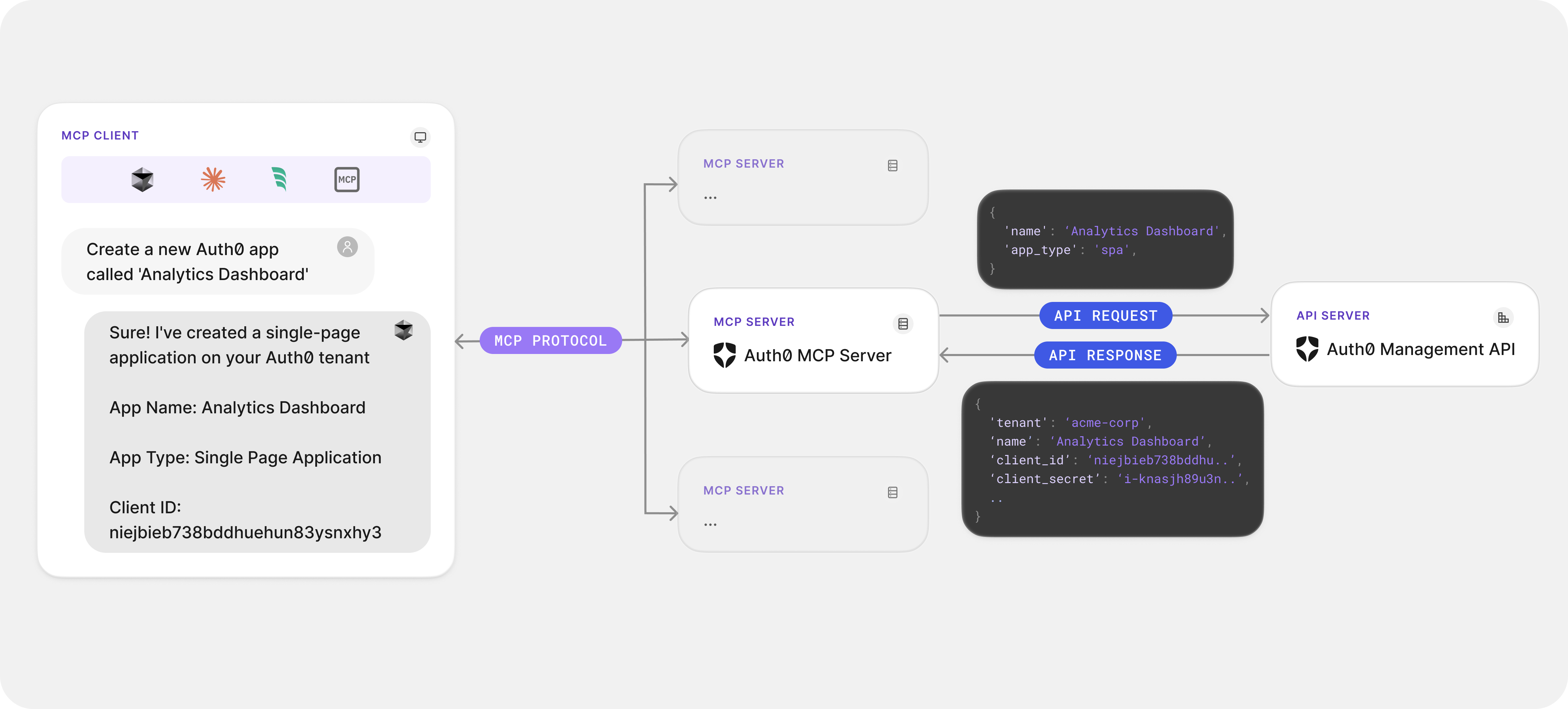
Authentication and credential security
Auth0 MCP Server prioritizes robust security by managing authentication, validating requests, and ensuring secure communication with the Auth0 . This includes:- OAuth 2.0 Device Authorization Flow: Securely authenticates requests with Auth0.
- Secure credential storage: Credentials are securely stored in your system’s keychain and never exposed in plain text.
- Minimal API permissions: Only essential permissions are requested, adhering strictly to the principle of least privilege.


